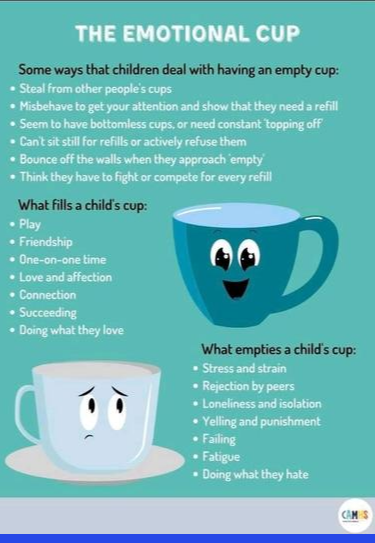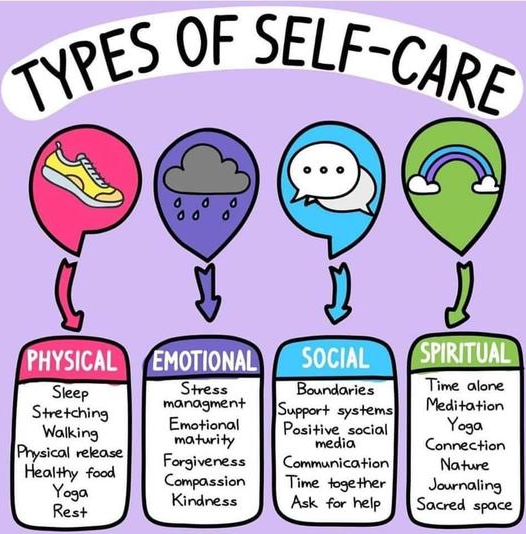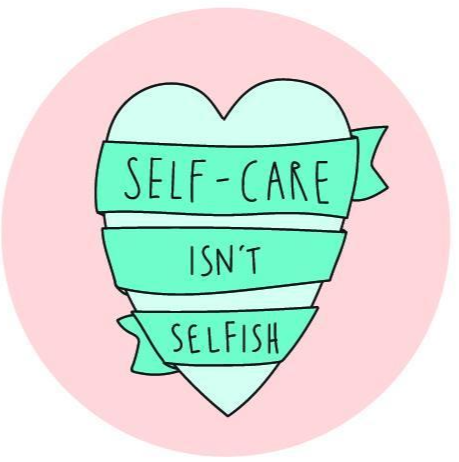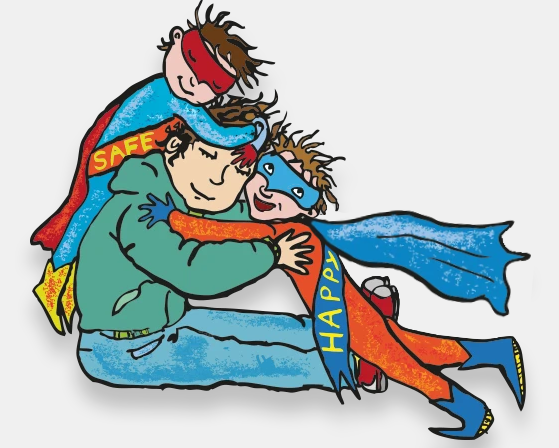Wellbeing
Welcome to our Emotional Wellbeing Area.
We aim to offer support and advice for parents and our pupils, and some suggestions for activities.
Please keep checking into this area, as we plan to add suggestions and resources as your children’s needs change through the course of any further developments.
Contact details:
Childline telephone number: 0800 1111
On Your Mind website – www.onyourmind.org.uk Barnado’s Healthy Minds Wiltshire 0800 157 7015
*For urgent support: 9am – 11pm 01865 903330 or 5pm-11pm 01865 901000 Crisis support https://www.happymaps.co.uk/help-directory/help-in-a-crisis/emergency-help-and-helplines
Young Minds 24 hour Parents Helpline : 0808 802 5544
NHS- recommended Mental Health Helplines
Please see the end of this section for further details of a range of national, regional and local Mental Health Services…
Thank you for all that you are doing to support your children at home at this time. It is greatly appreciated.
Doing your best is good enough.
It is now time to think about returning to school and we (the school staff) are so looking forward to seeing the children again.
Please find some hopefully helpful documents and videos below as we work together to prepare the children for the transition out of lockdown:
Nip it in the bud: Supporting children returning to school after school lockdown document and video below:



Providing support “all around the child”
Further sources of information and advice:
Guidance for full opening: special schools and other specialist settings
Mencap: Coronavirus helpful advice and information
Autism Education Trust: Covid19 back to school information for schools and parents
Scope: advice and support for returning to school
Discussing Coronavirus with children and young people
Mental Health Foundation: Talking to your child about scary world news

Let’s express ourselves and share our feelings…
“A healthy mind needs to exercise its imagination…”
“For everything you are feeling , there is a way to express it.” (Jodie Whittaker/ The Thirteenth Doctor)
This could be a meaningful time to undertake even more activities that we know can boost our children’s emotional wellbeing (e.g. mindfulness colouring, listening to classical music, deep breathing exercises, visualisations, yoga, welly walks and other fresh air breaks…), and also providing opportunities for them to express themselves through creative pursuits such as dancing, photography, story and poetry writing, cookery, art, junk modelling, song writing, composing, doodling, designing and making, drama etc.
Guided relaxations are uploaded weekly on Seesaw which could be of benefit.
One idea recommended by Dr Pooky Knightsmith ( the Educational Psychologist who is featured in the video below) is to have a “Golden Hour” every day in which the children choose a variety of games to play as a family, especially board games. There is an optional weekly “Family “Points of View” Sharing Story” which are all available on Seesaw too, and offer opportunities to listen carefully, discuss and reflect.
Another evidence-based suggestion is for children to keep a Journal : “When we write about how we think and feel each day, it has an incredible effect on how our brains work. Scientists have proven that it can make us feel fantabulous!” (Happy, Confident Me Journal)
Express yourself: Children’s Mental Health Week Toolkit- February 1st including:
What does “Express Yourself “mean?
Quick video including suggestions for expressing yourself
Play The Squiggle Game
More free resources for children also available by clicking on this link ELSA (Emotional Literacy)
Listen to/read Beautiful Oops! (Barney Saltzburg) about creating beautiful things out of mistakes, or listen to the song:
Guidance for parents for starting conversations around Mental Health:
Talking about Mental Health animation (KS2 especially)
The PSHE Association have created some Mental Health lesson plans which have been adapted for Home Learning.
These lessons are entirely OPTIONAL, and are only here in case you think your child might benefit from exploring them.
These lessons aim to help pupils to develop their understanding of different feelings and to reflect on how they can support their own and others’ mental health.
Please read the following guidance first:

How are you feeling?
For Key Stage 1 (Years 1 and 2):
For Lower Key Stage 2 ( Years 3 and 4):
Expressing Feelings Powerpoint
Feelings match up Pupil/Parent Guide
For Upper Key Stage 2 (Years 5 and 6):
Keeping well and managing feelings powerpoint
Activities for health worksheet
Helpful for Mental Health list
Please find below Home Learning PSHEE lessons based on improving sleep.

Sleep
Getting enough quality sleep is important for positive mental health.
These lessons explore the importance of bedtime routines and aim to equip pupils with actions they can take to improve their sleep habits:
KS1 (Y1 & Y2) Taking care of myself: Ready for sleep resources
KS2 (Y3-Y6) Taking care of myself: Getting a good night’s sleep powerpoint
KS2 (Y3-Y6) Facts about Sleep Accompanying resources
Further resources for children:
Wiltshire childrens wellbeing activity pack - from Barnardo's
Mindfulness calendar with 5 minute activities
Working from home advice for parents and carers:
How to WFH without tearing your hair out (7 minute video featuring Dr Pooky Knightsmith)
She talks about strong protective factors and the importance of secure structure and routines, being flexible and compromising, setting specific times for focusing entirely on your children and separating this from carved-out times for you when you have to work etc.
In a nutshell:
-
This will be a compromise
-
Create a new normal as soon as possible
-
Schedule hyper-productive focused work time
-
Don’t expect your children to be entirely self-sufficient
-
Build in family golden time/COVID worry-free time
Understanding the brain , feelings and coping strategies:

The video below describes how the brain works in a way which is easy to understand and will hopefully help you when you are supporting your children and young people. (Slight differences in the terminology used above e.g. animals but the same message).
Relaxing activities for children:
Separating Home from School:
From “All Around the Child: Supporting and Understanding Anxious Online Learners” (Tom Vodden):

Strategies to support your children:



Let’s fill up our children’s emotional cups…
Also our own: self- care is NOT self-indulgence.

Self- care is a way of investing in yourself and benefits others, especially our children.
Self- care is very important for parents and carers at this time to enable us to be as resilient as possible to manage and alleviate the worries and anxiety of our children, and to provide re-assurance.
Resources for Parents: Self-care and beyond:
Looking after yourself Parent Pack
Self-care for Parents and Carers resource created with the Anna Freud Centre's Parent Champions
An updated list of quality assured apps delivering self-help strategies
New portal for Anna Freud resources includes:
Supporting parents and carers through disruption - video from the Anna Freud Centre
Mental Wellbeing audio guides- from NHS Every Mind Matters
Coronavirus and your wellbeing - from Mind
Understanding anxiety - colourful guide from the Priory Group
What is Anxiety?- leaflet from Dragonfly Impact Education
Ideas to help manage your anxiety- from NHS Every Mind Matters
A free app for sleep, anxiety and stress- from Insight Timer
e-learning: staying mentally well through Covid19 - from Pooky Knightsmith

Resources to help you stay active
Stay safe when cycling links
www.dft.gov.uk/think/education
Indoor activities for kids - from Change4Life
Home workout videos - from NHS
Fitness studio exercise videos - from NHS
Chair based pilates exercise video - from NHS
10 minute workout video - from British Heart Foundation
Strength Exercise videos - From British Heart Foundation
Weekly staying active resources - from Living Streets
General miscellaneous resources:
Resources for dealing with the effects of lockdown
Toolkit for building resilience
Resources to support mental health and wellbeing
Resources for managing anxiety and improving emotional wellbeing
Internet safety toolkit
Signposts to further specialist support: Helplines and Websites

If you are worried about your child or think that you need advice from professionals, there are a range of local and national services across the UK and Wiltshire including:
-
Your local GP
-
Barnado’s Healthy Minds Wiltshire 0800 157 7015 If you need urgent help: 9am – 11pm 01865 903330 or 5pm-11pm 01865 901000 If you have concerns from 11pm-9am please call NHS 111
https://www.onyourmind.org.uk/Mental Health helpline for children, young people and parents/carers.
Advice for parents and carers: https://www.onyourmind.org.uk/parents-and-carers/
-
Downton 4 Family (Helping families to help themselves): https://downton4family.org.uk/
-
Parents A-Z Mental Health Guide - https://youngminds.org.uk/find-help/for-parents/parents-guide-to-support-a-z/#grief-and-loss
-
Young Minds – 0808 802 5544 – www.youngminds.org.uk/about-us
-
Anna Freud - National Centre for Children and Families https://www.mentallyhealthyschools.org.uk/mental-health-needs/
-
CAMHS (Child and Adolescent Mental Health Services) - 01722 336262 ext 2779 https://www.oxfordhealth.nhs.uk/camhs/wiltshire/services/salisbury/
-
Family Counselling Trust-https://familycounsellingtrust.org/
-
Mind – 01225 706532 https://www.wiltshiremind.co.uk/
-
Samaritans – 116 123 – www.samaritans.org
-
ChildLine - 0800 1111 – www.childline.org
-
Place2Be - https://www.childrensmentalhealthweek.org.uk/parents-and-carers/
-
The Avon and Wiltshire Mental Health Partnership- 24 hour helpline: 0300 303 Trust headquarters: 01225 731731 http://www.awp.nhs.uk/
-
Happy Maps- https://www.happymaps.co.uk/age-group/primaryschool
-
Action for children: https://www.actionforchildren.org.uk/our-work-and-impact/children-and-families/good-mental-health/
-
MindEd for families- https://mindedforfamilies.org.uk/
-
Self-harm advice and support: https://youngminds.org.uk/find-help/for-parents/parents-guide-to-support-a-z/parents-guide-to-support-self-harm/ including a video suggesting what to do.
-
The Ollie Foundation (“One life lost is enough”) – 07715 311 891 – www.theolliefoundation.org
-
Winston's Wish - UK childhood bereavement charity. www.winstonswish.org/
-
Emergency numbers available/ Crisis support https://www.happymaps.co.uk/help-directory/help-in-a-crisis/emergency-help-and-helplines

You are not alone.


Information for young people and for parents / carers including links to resources and organisations that can support with emotional wellbeing.
COVID-19 information for children, under the age of 7 - from Mindheart
Talking to your child about Coronavirus - from Young Minds
Talking to children about illness - recent guidance from BPS
“While We Can’t Hug’ - A short video clip from the creators of the internationally adored The Hug, Eoin McLaughlin and Polly Dunbar are thrilled to bring you a new story: While We Can't Hug.
Resources for managing anxiety and improving wellbeing -Mentally Healthy Schools
Resources for dealing with the effects of lockdown - Mentally Healthy Schools
Tailored Support for EYFS Parents and Carers: Resources from the Anna Freud Trust
Care for the Family has specific information for parents and carers of children with additional needs as well as general parenting info.
Also a Facebook page.
The following might be a good stimulus to help explain the current situation, and to talk about your child’s feelings:
Coronavirus: A Book for Children, illustrated by Axel Scheffler
Our emotional and physical health can be severely compromised during these unsettling times.
The pressures on parents of Home Learning and working from home can cause friction, frustration and stress.
The NHS Every Mind Matters website https://www.nhs.uk/oneyou/every-mind-matters/
has some helpful and common- sense sections about looking after our Mental Health.
Looking after children and young people during the coronavirus outbreak
7 simple tips to tackle working from home
https://www.nhs.uk/oneyou/every-mind-matters/7-simple-tips-to-tackle-working-from-home/
Mental Wellbeing while staying at home
https://www.nhs.uk/oneyou/every-mind-matters/coronavirus-covid-19-staying-at-home-tips
Parent recommendations
We are also keen to hear your suggestions as to what you would like to be added to this area.
One parent has kindly offered the following suggestions:
“We have been using story massage at bedtime and it has been lovely. Here is a link to her website: https://www.storymassage.co.uk and there are some videos to follow along with here: https://vimeo.com/storymassage
Bridge the Gap is a wonderful organisation offering emotional wellbeing support to parents and families. They are running weekly webinars, have a great range of free resources and have support groups on facebook should parents be interested. https://www.jwbridgethegap.com”
Parents, please find some hopefully helpful links below:
Below is the introductory letter which features some signposts to support services and some useful websites for your children:
Letter to Parents about Emotional Wellbeing
Here are some signposts to further assistance for families:
For mental health generally as well as at this time:
Organisations to support parents and carers
Further resources for parents :
Covid-19 support and advice for parents - from Wiltshire Council
WPCC COVID-19 web pages - from Wiltshire Parent Carer Council
COVID-19: guidance on supporting children and young people’s mental health and wellbeing - from DfE
Parenting during COVID-19 - pdf from Triple P
Triple P website and Facebook page - for parenting support
Care for the Family has specific information for parents and carers of children with additional needs as well as general parenting info. Also a Facebook page.
Supporting parents and carers through disruption - video from the Anna Freud Centre
Wiltshire Council's Coronavirus page including details of the new Wiltshire Wellbeing Hub
Talking to your child about Coronavirus - from Place 2B
Talking to your child about Coronavirus - from Young Minds
Talking to children about illness - recent guidance from BPS
Coronavirus guidance for carers - from Carers UK
e-learning self-sooth strategies - from Pooky Knightsmith
Supporting Neurodiverse Children In Challenging Times Such As During Self-Isolation - video from NHS East London
Other national resources for children
Calmzone - a toolbox of calming activities from Childline
Relaxation activities for children at home
e-learning self-sooth strategies - from Pooky Knightsmith
Relaxation exercises for children
Keeping calm activities for young children (EYFS in particular)
Understanding anxiety - colourful guide from the Priory Group
Mind of My Own Mindfulness Project
Coronavirus: A Book for Children, illustrated by Axel Scheffler
Coronavirus fact sheet for children - From Public Health England
You Tube video to accompany the factsheet - from Alder Hay Children's Charity
Advice if you are worried about Coronavirus - videos from Newsround (March 2020)
How I’m keeping in touch with my friends (May 2020 Newsround video)
***
Family links
Free Jigsaw Families stories and Calm Me time audios
Free Jigsaw song, ‘Together as One’
Here is a journal for the whole family: Happy Self Journal
Here are some more suggestions for activities for the children, especially those receiving ELSA support ( from our Emotional Literacy Support Assistant Mrs Kilgour):
More free resources also available by clicking on this link
A story about the importance of staying safe and well at home:
The Stay at Home Superheroes
Suggestions for staying well during this time using self- support strategies:
A pictorial explanation of the coronavirus (designed primarily for children on the autistic spectrum):

With huge thanks and credit to Dr Pooky Knightsmith of Creative education.













